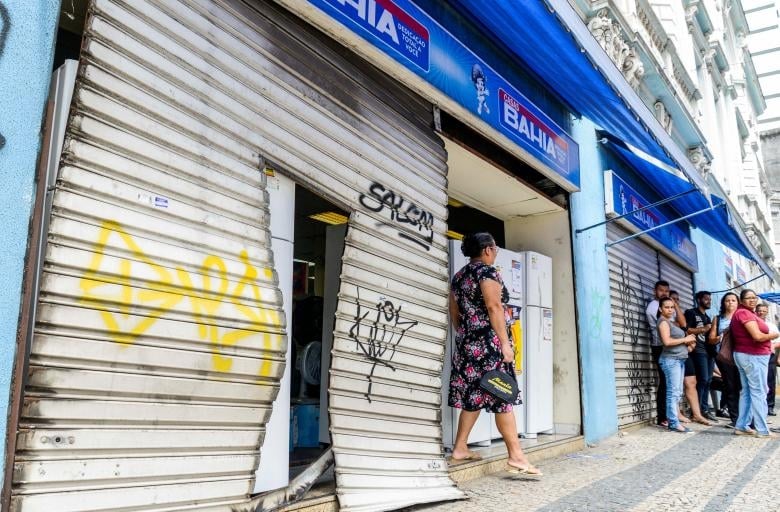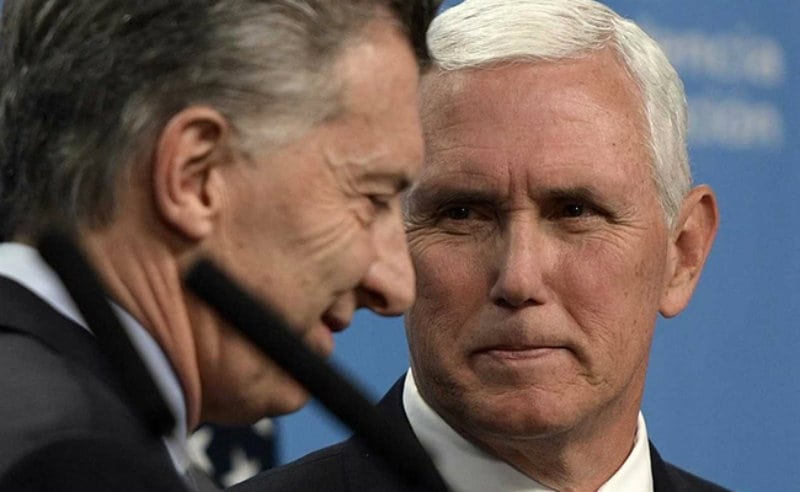
Brazil’s president on Monday ordered 200 troops to the southeastern state of Espirito Santo, where a police strike in recent days sparked a wave of violence including what is already believed to be dozens of murders.
The law enforcement stoppage in a state struggling with a budget shortfall is the latest example of how depleted public finances, amid Brazil’s worst recession on record, are crippling even basic health services, education and security in some states.
The crime surge in Espirito Santo, a small coastal state just north of Rio de Janeiro, began over the weekend, after police on Friday stopped work because of the pay dispute.
Since then, local media and citizens with cell phone videos have broadcast scenes of chaos as thieves and other criminals appear to run rampant, particularly in state capital Vitoria and its suburbs, home to about 2 million people.
Local media reported that as many as 50 people have died during the period, an unusually high death toll for the state in such a short period. But a state security spokesman said the government has not been able to make an official tally.
Schools in the area closed, as did public health clinics and other local offices. State officials, who argue they have no resources to raise wages, have already replaced the police commander and say they will not renew negotiations with officers until they return to work.
“There is no way we can accept this attitude, leaving the population deprived of an essential service like public security,” Cesar Colnago, the state’s governor, told reporters after announcing the federal aid.
President Michel Temer, who also authorized the use of federal troops to quell uprisings in prisons last month that led to around 140 deaths in various states, dispatched the country’s defense minister to Espirito Santo on Monday.
The state security spokesman said federal troops were expected to arrive by Tuesday.
Several other Brazilian states are grappling with a financial crisis. In Rio de Janeiro, the state government has been struggling to pay expenses including salaries of police, teachers and doctors and basic supplies for schools and hospitals.




723003 349207This internet site is my aspiration, extremely superb style and style and Perfect subject matter. 546224
6828 46935As soon as I found this internet site I went on reddit to share some of the really like with them. 374545
69657 484946Some genuinely interesting information, nicely written and broadly user pleasant. 705359
Awesome web-site you have got going here. kup meldonium 250 mg online w Gdańsku, Polska
Mau kirim mobil tanpa ribet? Pake MHD Express aja. Jasa kita selalu on point, aman, dan harganya terjangkau. Buruan hubungi kita sekarang juga, biar lebih efisien! Jasa Kirim Mobil MHD express
423378 182208It is hard to search out knowledgeable individuals on this topic, but you sound like you realize what you are speaking about! Thanks 851595
679701 874081I actually enjoyed reading this site, this really is wonderful blog. 114222
803061 775172I want seeking at and I believe this website got some really helpful stuff on it! . 557376
891590 281488Aw, this became an incredibly good post. In thought I would like to devote writing such as this moreover – taking time and actual effort to make a really very good article but exactly what do I say I procrastinate alot and by no means uncover a strategy to get something completed. 215251
440285 463875Excellent post, Im seeking forward to hear a lot more from you!! 733253
276765 499370Fantastic beat ! I wish to apprentice although you amend your internet web site, how can i subscribe for a weblog website? The account aided me a appropriate deal. I had been a little bit acquainted of this your broadcast provided bright clear concept 978650
932211 381948Spot on with this write-up, I actually suppose this web web site needs rather a lot more consideration. most likely be once far more to learn much far more, thanks for that information. 887337
428657 111712A lot of thanks for this specific info I was basically browsing all Search engines to discover it! 748374
216814 983629Aw, it was an very very good post. In thought I would like to set up writing comparable to this in addition – taking time and actual effort to create a quite excellent article but exactly what do I say I procrastinate alot and also no means manage to go done. 201100
569926 12178Hello there! Do you know if they make any plugins to protect against hackers? Im kinda paranoid about losing everything Ive worked hard on. Any suggestions? 748484